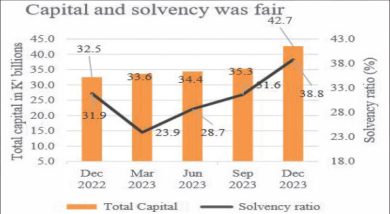New cotton seed from Quton
 There is a newborn in the Quton cotton seed family coming with promises and hopes for higher quality and higher yield thus better returns for the grower.
There is a newborn in the Quton cotton seed family coming with promises and hopes for higher quality and higher yield thus better returns for the grower.
The variety, QM302, is one of the many new crop varieties coming out of SeedCo group research fields at Kadoma Research Station, some 150Kilometres, south of Harare, Zimbabwe.
Releasing the variety to the public during a Seedco annual field day at Kadoma, Quton managing director Edworks Mhandu acknowledged, however, that the variety has come at a time prices of lint are dropping at world markets.
The dropping prices have heavily impacted on grower income, especially in the southern hemisphere.
Mhandu said “we are hopeful that the product we bring will be of a higher quality which should be the answer to dropping prices because manufacturers need quality.”
A Tanzania regional commissioner for Simuyu region Pascal Mabiti, present during the launch of QM302, thinks the unstable prices largely affecting the sub-Saharan Africa can be controlled if governments introduced price stabilisation funds.
According to SeedCo head of research, Darlington Mtetwa, QM302 is among varieties that can be grown throughout Africa.
“QM302 is just one of the many because there are a number of early-maturing varieties but the transition will not be easy,” said Mtetwa.
Currently, Quton sells another variety, QM301 in Malawi.
He said the new early maturing varieties will not only come with increased plant population – as they are smaller shrubs than usual – but will also come with a call for increased seed rate, increase fertiliser rate, change in weed management and increased soil cover.
“There will be many plants per hectare, soil cover is more assured which will help reduce soil erosion in the end,” he explained.
Zimbabwe, one of Africa’s major cotton growers have tried to cushion production costs from farmers through contract farming where growers are given seed and inputs by ginners who work in close collaboration with SeedCo.
In Zimbabwe, 25 percent of the population depends on “white gold” as cotton is called there, according to Malambo, a technical advisor the country’s Ministry of Agriculture.
According to Godfrey Buka, director general of Cotton Ginners Association in Zimbabwe, 98 percent of that country’s cotton is produced under contract farming.
“Ginners buy seed from Quton and gives to farmers. This is important because farmers are guaranteed inputs, but it also helps reduce side marketing,” said Buka.
While bringing new varieties across Africa, Mhandu said Quton would still want to see cotton seed researchers in Malawi producing more varities adapted for local soils.
He said the problem is that although Malawi seeds are doing well, they are not produced in large quantities to satisfy the local demand.




